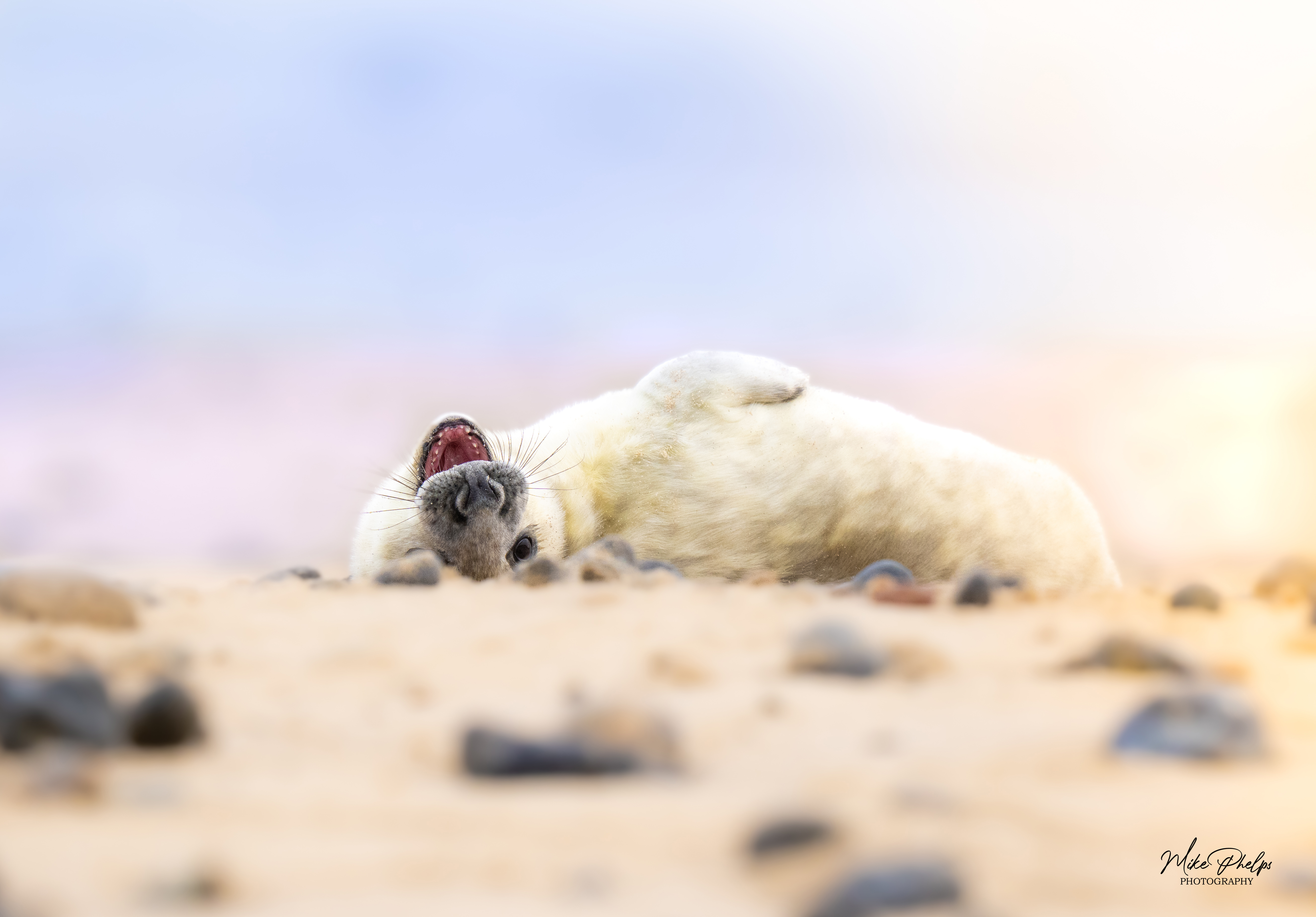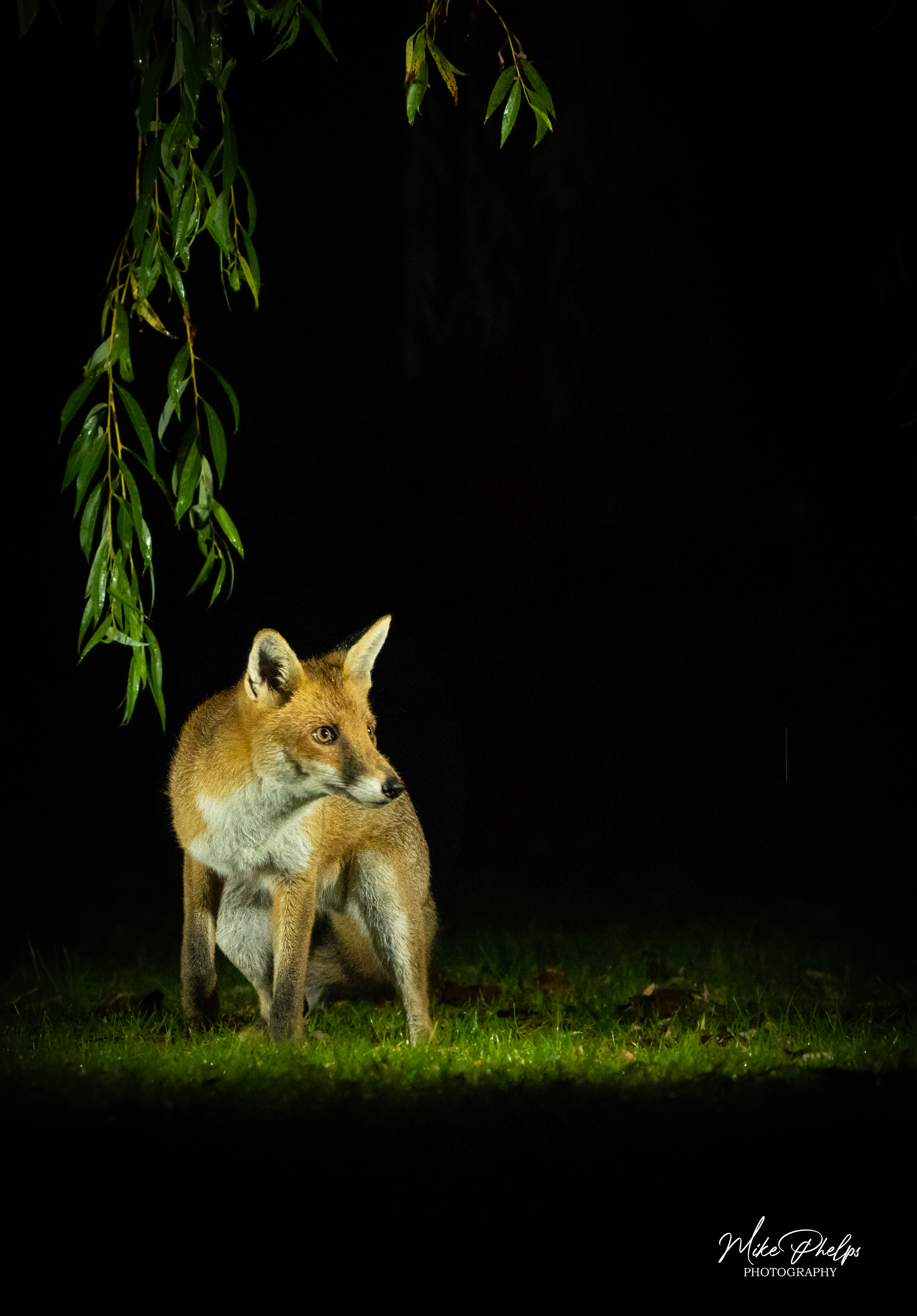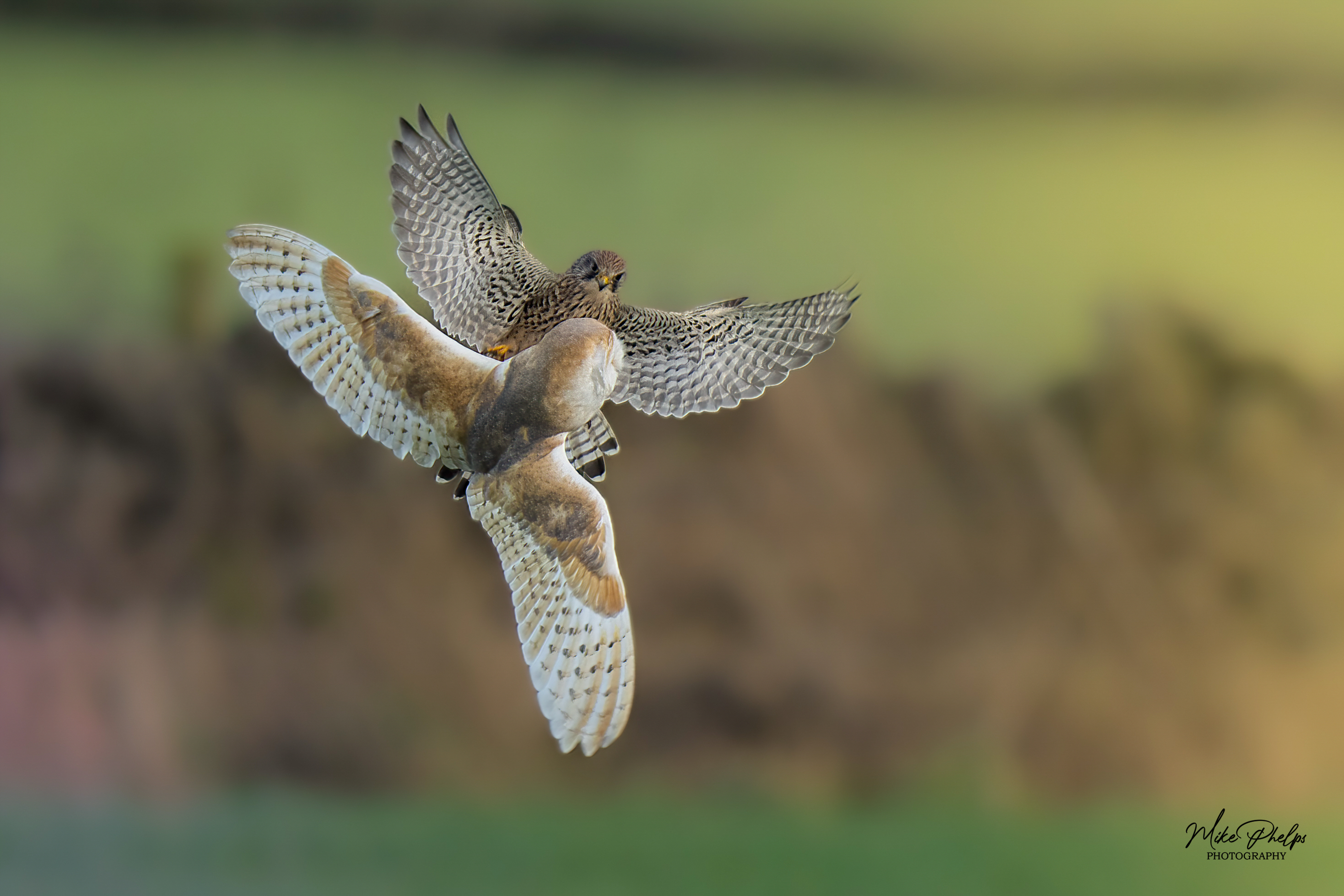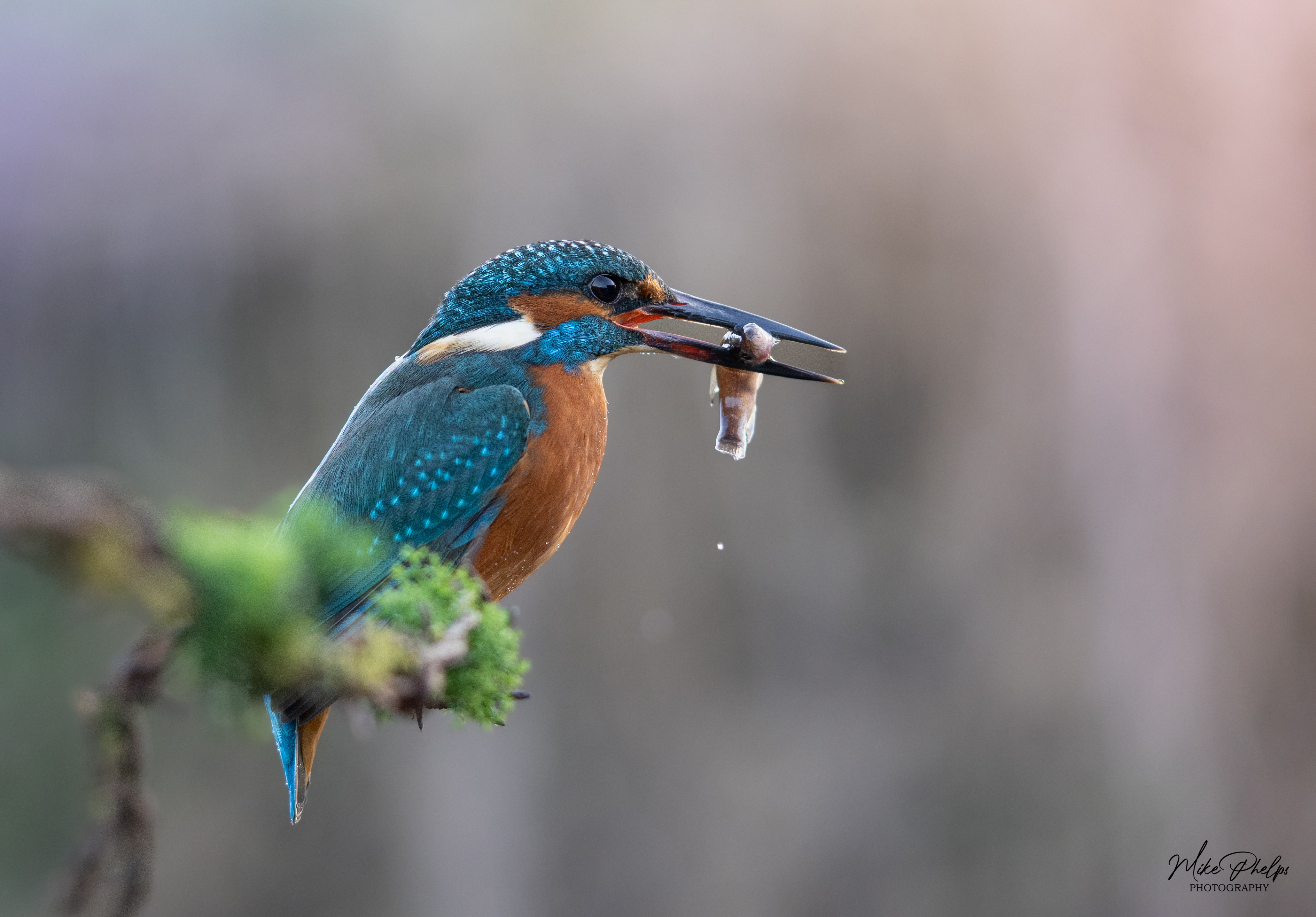Mike Phelps needed to heal. Phelps discovered that for him, the best therapy, the most powerful medicine, was spending time outside, observing nature and capturing it with a camera.
“I have learned so much from wildlife and nature, mainly that we need to look after our planet and the environment or we will lose so much wildlife and beautiful places we can visit,” he told Kinute.
“I’ve been interested in nature since I was about 5 years old,” Phelps said. “My uncle took me to a place where peregrine falcons had nested for the very first time. This was in 1982, so I was very young, but I remember this day so vividly! One of the peregrine landed on the stone wall near to where we were viewing the nest and it had a sudden impact on me. I knew straight away I wanted to look for more wildlife. Since that day I have always been interested in wildlife and spent many days out at nature reserves with a pair of binoculars.”

A close-up look at a peregrine falcon when he was 5 sparked a lifelong fascination with the outdoors, allowing Phelps to photograph wildlife, including this male sparrow hawk. Photo by Mike Phelps Photography
He said his decision to focus his life and career on photography was caused by deep-rooted pain that he no longer could ignore.
“A number of years ago I really started struggling mentally, showing all the usual signs, short-tempered, drinking more than I should, struggled sleeping on an evening and couldn’t concentrate,” Phelps said. “This went on for a number of months when I finally had an emotional breakdown and was signed off work and counseling arranged for me.
“It was during this time that I was told that a traumatic event that happened some 27 years previous had now come back to trouble me, and I was suffering due to this,” he said. “As a child your brain is very clever and to protect me back then it had shut these feelings and thoughts away, I had not even mentioned it to my wife!”
Phelps said she guided him to peace and a possible new career.
“Whilst I was signed off and receiving counseling, my wife suggested that I take a camera out that I had previously brought for her and use it to capture nature as a way to relax,” he said. “I was off for three months and this was when my journey into wildlife photography began. This was my therapy! And was my main cure for my mental health and well-being.”
Phelps admitted he struggled to deal with the trauma he had endured as a child. It was a deeply painful, personal event.
“Unfortunately, due to the separation of my parents, my dad really struggled and one night decided to take his own life,” he recalled. “I walked downstairs and found his body, a bottle of whiskey, empty packets of tablets and a note apologizing and telling us he loved us. I was in total shock. I hid in my room all night shaking not knowing what to do, I look back now and ask myself why I didn’t call an ambulance but I was a kid and in shock not thinking straight.
“When I finally plucked up the courage to go back downstairs in the morning my dad was awake! I can only think that he had passed out with the alcohol before taking enough tablets,” Phelps said. “He quickly hid the note and tidied up after himself.”
It’s a sad story with a happy result. But the fact that he hid away his emotions was a mistake, Phelps has learned.
“My dad is fine to this day and I am grateful he was unsuccessful,” he said. “That was the last time I remember about it and then never thought about it again until 27 years later when something triggered all those emotions and I went into depression and suffered anxiety on a big scale.”
Phelps, 45, said nature serves as a form of therapy for him, and has allowed him to heal.

A seal pup relaxes on the beach. Photo by Mike Phelps Photography
“It has helped me in so many ways,” he said. “It’s scientifically proven just being out in nature is really good for your mental health and well-being. For me, if I feel a little down I can grab my camera and go out into nature, enjoy the peace and quiet and watch the amazing animals and wildlife. This puts me in a positive mood and I feel incredible.
“With wildlife photography, you get an amazing feeling when a beautiful creature comes within range and you capture it in all its glory,” Phelps said. “It’s even better when the conditions are perfect and the light is good. I have also received a number of messages from people who have said that my photos and my little adventures that I document have also helped them with their mental health, so that’s a massive plus for me and makes it all worthwhile.”
He lives in Sutton Coldfield, West Midlands, in the United Kingdom, with his wife Sam and their daughter Miya, 16, and Billy, 12.
In addition to taking his kids along when he ventures out, he sometimes goes with his friend Chris Lowe, a “fantastic photographer” and good companion,
“We do a lot of photography together traveling all over the country to capture amazing wildlife,” Phelps said. “Whilst on our adventures we use this time to talk to each other about how we are feeling. This is a great help when it comes to mental health. Having someone you trust that you can open up to makes a huge difference and I am grateful I have a good friend that I can talk to.
“We both understand mental health and how it effects both of us in different ways, and sharing this can mean the difference from spending the day feeling alone to having a great day and feeling amazing,” he said. “We also have lots of banter and can sometimes be found belly-laughing on the floor trying to be quiet so we don’t scare the wildlife away. The main point is try and find someone you can trust and talk to — it really helps.”
He had been focusing his time and lenses on foxes who visit his garden at night.
“It’s been a project that I started over six months ago, building up their confidence and then increasing the lighting to allow me to take nice photos,” Phelps said. “I had done all the hard work and finally after a few months a female was coming in every night at the same time and allowing me to photograph her. Then a couple of evenings she did not show up and I started to worry. Unfortunately, I found her body at the side of the road the next day; she had been hit by a car.

Mike Phelps spent months slowly gaining the trust of foxes who visit his garden. The result was a series of stunning photos of the elusive animals. Photo by Mike Phelps Photography
“I went about going through the process again and yet again this happened again not once but another two times. It was heart-breaking; you get attached to these animals when you work with them nearly every night and it just showed to me how hard it is for these foxes to survive.”
The traffic is heavy on local roads and many animals are killed, he learned.
“I don’t know what the answer is but we are taking away the animals’ habitat, forcing them into our towns and cities and this is pushing a lot of amazing animals into decline,” Phelps said.
His favorite outdoor models are owls, although he enjoys seeing and capturing so many other animals.
“It’s hard to explain but when you are set up in a location waiting for the owls to appear it’s all quiet and you can feel the anticipation an excitement growing as it gets to that golden hour when they like to hunt,” Phelps said. “All of a sudden they appear and it’s like without hearing anything the whole atmosphere in the area changes. It’s a magical feeling watching them silently fly over the fields, then suddenly they will hear a small rodent under the grass and they dive onto it! It’s incredible to watch! Better than any TV program.”
Shooting photos of wildlife and spectacular outdoor settings is a major change from his previous work.
“I worked in the construction sector as a senior manager looking after large refurbishment projects all over the UK,” Phelps said.
It involved long hours and lots of stress, he said. His new career has literally been a life-changing decision.
“It 100% made me a better husband and father,” Phelps said. “My children benefit massively, they come out with me whenever they can, it’s great exercise and I believe one of the best ways to educate your children. I’m really lucky to have such a supportive wife, before I was stressed, short-tempered and a pain in the ass to live with.

A barn owl and kestrel duel in mid-air. Phelps said owls, silent and mysterious, are his favorite subjects. Photo by Mike Phelps Photography
“Sam stuck by me when things were tough and I will always be really grateful for this. Now she says I’m a different person,” he said. “Sometimes she even suggests I go out with my camera as she knows how much it helps me. I have a lot more patience and am so much more relaxed and that is all down to me spending so much time in nature with my camera.”
Sharing the beauty of nature
He wants the images he produces to help people appreciate the glory of nature.
“I would love for people to see how beautiful these animals are and hope that people start to respect them and their habitat more so they can survive for our grandchildren and their children to enjoy,” he said.
Phelps strongly believes there would be fewer mental health-related problems today if people were more connected to the outside world.
“Absolutely,” he said. “As I said before, it’s proven that the endorphins that are released when out in nature are fantastic for our mental health and well-being. Everyone’s situation is different but there is so much help and support out there, so look up a number of support groups that can help you in a huge way.
“If you are really struggling to speak about it (harder than you think — I know) go to a doctor and explain how you are feeling and get the necessary time off to concentrate on getting your mind fixed. People break a leg, they go straight to the doctor and get it fixed. Your mind is no different and hopefully people’s perception about mental health is changing.”
Phelps offers a tip on taps that he credits with helping him at his lowest ebb.
“Finally on this matter the most important thing is ‘finding your tap.’ If you see your head as a bucket and all the stresses of life are pouring in to the top, you need a tap at the bottom to release those pressure and stresses,” he said. “Mine is wildlife photography but for you it could be running, cooking, walking in nature. That for me is the important thing to find, and it will help in such a big way.”
In addition to his photography, devotion to wildlife and desire to promote mental health awareness, Phelps is an advocate for conservation. He said the delicate balance that exists must be preserved and protected.

A kingfisher with its prey. Photo by Mike Phelps Photography
“We live on an incredible planet, we are lucky to have all the elements here to create life, out of all the millions and trillions of planets out there we don’t know of any yet that can support life,” Phelps said. “Living here is better than winning the lottery — but if you did win the lottery you wouldn’t throw the money away the next day. That is what I feel we are doing to the planet and that is why conservation is so important. We need to educate people in how to look after habitats that will sustain wildlife. We are losing species at a huge rate and that needs to stop. This can only be done through conservation and education.”
That’s why he aspires to follow in the footsteps of broadcaster, conservationist, author and advocate Sir David Attenborough. At 95, he remains active and involved, and was just nominated for the Nobel Peace Prize.
“My ultimate goal would be to work with my hero, living legend Sir David Attenborough,” Phelps said. “The work he has put in over the years is incredible. He is like a god in our house.”
He also is dedicated to sharing his experiences and encouraging others to face their problems and discover a way forward.
“With regards to mental health, I will always use every platform to tell my story and try and help people realize that they are not alone in feeling this way,” Phelps said. “I have a few things in the pipeline that will bring mental health awareness and nature together, so I am really excited about that.”
To view his work, go to his Facebook page — Mike Phelps Photography — or view them on Instagram @phelpsphotographyx.
